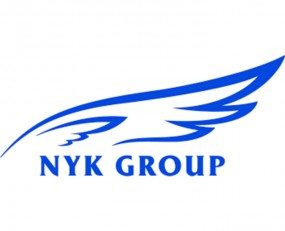
Over the three months to the end of June, revenue in its container shipping business was 21.3% higher year-on-year, whilst recurring profit was ¥5.7bn in contrast to Q1 2016 which saw an ¥8.8bn loss.
It’s air freighter business saw sales increase even more, with revenue climbing 22.8% and the business in the black by ¥0.7bn, compared to last year’s Q1 loss of ¥1.9bn
NYK’s management was not overly excited about the improved market conditions, describing “conditions in the container shipping market” improving due to “brisk shipping traffic and steady spot rates along European shipping routes”, whilst “other shipping routes also mostly recovered”. Although transpacific routes were also brisk “the supply of tonnage increased, delaying a recovery in the market”.
NYK also described demand in its air cargo business as “brisk”. The company’s focus is traffic between Japan and the rest of the Asia region, a route which “tends to slow down in the first quarter of every year”. However, this year the “machinery and equipment, automobile-related cargo, and fresh produce” saw higher demand enabling NYK to increase prices and widen margins.
The Logistics business, which is complex and includes the Yusen forwarding and contract logistics businesses, fared differently, with forwarding suffering from the higher freight rates despite Yusen’s road and contract logistics business doing well in Europe. The division edged into a loss.
The key bulk shipping business, which will become the core of NYK after its container business is merged into the new ‘Ocean Express Network’ joint venture, saw a 3.6% increase in profits as growth in the car-carrier and oil tanker market moderated.
The results at fellow Japanese carriers, ‘K’ Line and Mitsui OSK were similar, with higher container shipping volumes and better profit margins.
The shift in the container and air freight market is now established and continuing moderate global trade growth suggests that it may continue. Big carriers such as NYK are not expanding their fleets excessively whilst they focus on take-overs and restructuring, suggesting this phase in the market cycle may continue well into next year. Air freight may be less stable with no shortage of belly-freight in the market.
Source Transport Intelligence, August 1, 2017
Author: Thomas Cullen